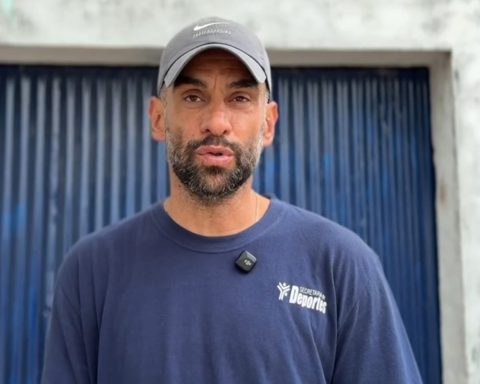Last Saturday (10), writer Jorge Amado (1912-2001) would have turned 112 years old. For the past eight years, as a way to celebrate his memory and legacy, the Casa de Jorge Amado Foundation has held the Pelourinho International Literary Festival (Flipelô), always on his birthday.

Author of books such as Dona Flor and Her Two Husbands, Tent of Miracles, Tieta from the countryside, Gabriela, Clove and Cinnamon and Tereza Batista Tired of WarJorge Amado is the translation of Bahia. “My grandfather always said that he had not created the characters that gave him fame and notoriety. He had simply recognized those ready-made characters in the people of Bahia,” said the writer’s grandson, Jorge Amado Neto.
The novels written by Jorge Amado feature the streets, houses, people, smells and customs of Bahia, but his work has also always reflected on Brazilian social problems. “From the moment Jorge Amado began writing and as his literature developed, he demonstrated that it is necessary, through culture and literature, to confront social issues. He puts these problems in a clear light to encourage people to rethink and create social awareness,” added Neto.
“He was part of a generation of notable people who were responsible for the construction of the identity of the people of Bahia. What we now call Bahianness – the way of speaking, resolving issues, positioning oneself, the way of communicating, dressing and expressing culture through joy, dance, music and the arts – he, along with other people of the time, such as Calasans Neto, Carybé, João Ubaldo Ribeiro and Dorival Caymmi, was responsible for giving an identity or consolidating this very marked identity of Bahia”, he stated.
Family memories
Jorge Amado Neto was 16 years old when his grandfather died. “I had a very strong connection with him, and he called me my friend. He would say: ‘My friend, come here so I can talk to you’. So I would go there, I must have been about five or six years old. My grandmother would come after me and he would say: ‘Zélia, this is a conversation between men. This is me and my friend here’. And I would get all fancy, thinking I was all that”, he said.
“There is a famous story, which I have told a few times, which was when I went out to pick some jambos here [na casa do Rio Vermelho]. In the garden, I picked a basket of yams. I went over to him, who was watching TV, with these yams. I said: ‘How are you, my love? Do you want to buy some yams from me?’ Then he replied: ‘But come here, you go to my garden, pick my yams, and come here to sell them to me?’ And I replied: ‘But I had to work hard to pick them, I climbed the yam tree and could have fallen, everything is washed here for you.’ He thought these things were great and said: ‘Take my wallet. How much is this basket of yams?’ I said a price and then went over to him and said: ‘Can I have one of those yams?’ And he replied: ‘But you just sold them!’ And I added: ‘Well, now they’re yours. I’m asking you for one because I didn’t eat them before I sold them to you.’ And then he let me take the yams.”
Legacy
In an interview with Brazil Agency at the Casa do Rio Vermelho, in Salvador, where his grandfather and grandmother Zélia Gattai lived, Jorge Amado Neto reflected on the legacy he left behind. “Note that many people who did not know Brazil, who had never been to Bahia, came to visit us, like [Jean-Paul] Sartre, Simone de Beauvoir, Nicolas Guillén and so many other personalities, because they read Jorge Amado. As he was widely publicized and published in other countries, he gave people on the other side of the world the opportunity to experience some of the smells and flavors of our land. No one more than Jorge Amado brought more people from other countries here, in order to experience what was only in the pages of books.”
This legacy, Neto said, permeates the novels written by his grandfather and their importance to Brazilian culture. There are also very strong memories that he left within the family. “My grandfather was one of the best people I have ever known because he was loving, playful, and present. He did everything a grandfather does with his grandchildren: he took them for walks, played with them, and ate ice cream. I miss him a lot and I say that people who recognize Jorge Amado as a great writer often do not know him intimately.”
The writer left behind values such as honesty, manliness and justice for his family. “I am sure that this was the greatest legacy he left us,” he said. As for Brazil, his grandson said, he left behind an example of listening to those marginalized by society.
“My grandfather was one of the greatest writers in Brazil and responsible for a paradigm shift in Brazilian literature, because he began to give voice to various social segments that were completely marginalized, such as women, black people, the poor and the disadvantaged,” said his grandson. “At a time when these people did not have their rights recognized, he played a very important role in giving them a voice and a vision. I think he was a great master of literature, but he also had great social importance. He changed the lives of many people through his books.”
*The reporter and photographer traveled at the invitation of the CCR Institute, sponsor of Flipelô.

















